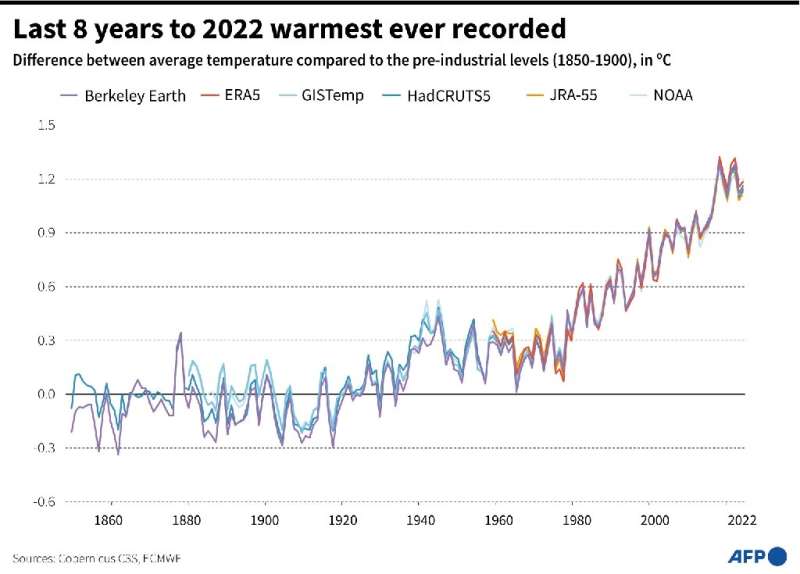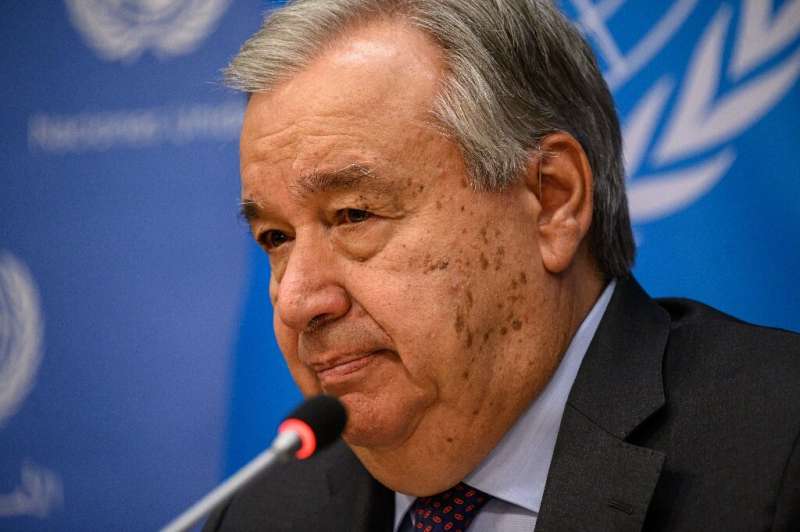Pressure to accelerate carbon pollution reduction took a back seat at the recently concluded UN climate talks as emerging economies, including China, demanded significant increases in climate financing from wealthy nations.
The deadlock during the 10-day negotiations in Bonn obstructed progress on various issues, such as minimizing the social costs of transitioning to clean energy and quantifying countries’ adaptation needs. Additionally, it hindered efforts to provide assistance to economies already devastated by climate-amplified extreme weather events.
This situation adds more pressure to the upcoming COP28 climate summit in the United Arab Emirates, where nearly 200 nations will assess the “global stocktake” of progress towards the Paris climate agreement’s goal of limiting global warming to 1.5 degrees Celsius above pre-industrial levels by the end of the century.
According to the UN’s climate science advisory panel, based on current policies, the planet will warm nearly twice the agreed-upon target by 2100.
“Climate change is not a divide between the North and the South,” remarked UN Climate chief Simon Stiell during the closing plenary. He emphasized that it is a threat that affects everyone and can only be addressed through investing in climate action.
A longstanding conflict at the UN climate talks involves the European Union and the Like-Minded Developing Countries (LMDC) bloc, which includes China, India, and Saudi Arabia. The EU and vulnerable nations aim for an accelerated timetable for reducing greenhouse gas emissions and advocate for the phasing out of fossil fuels. However, the lack of progress is due to the wide gap between the relatively small funds mobilized by historically responsible wealthy nations and the trillions needed by developing countries to transition to green economies and cope with climate impacts.

From billions to trillions
“The difficulties of making substantive progress on loss and damages reflect the reluctance of developed countries on getting into real engagement,” said Cuba’s lead negotiator, speaking on behalf of the G77 + China bloc, which includes 134 countries and 80 percent of the world’s population.
The confidence in the US, Canada, Europe, Japan, and other wealthy nations has been further eroded by their failure to fulfill the promise made in 2009 to provide $100 billion annually to developing countries by 2020.
Although a delegate from the European Union insisted that they stand by their climate finance commitments and cited a joint report by Canada and Germany claiming that the $100 billion promise would be fulfilled by 2023, rich nations emphasize the importance of tapping into private finance to leverage billions into trillions.
This objective will take center stage at the Summit for a New Global Financing Pact, hosted by French President Emmanuel Macron in Paris next week.
‘Missed opportunity’
The urgency to take accelerated action will be the focus of a climate summit in New York in September, hosted by UN Secretary-General Antonio Guterres, who expressed disappointment with the lack of progress so far.
“Countries are significantly off track,” he stated. “I see a lack of ambition, trust, support, and cooperation.”

Guterres strongly criticized the fossil fuel industry, stating, “Let’s face facts. The problem is not simply fossil fuel emissions. It’s fossil fuels, period.”
This perspective contrasts with the views of COP28 president Sultan al-Jaber, who is also the head of the Abu Dhabi National Oil Company. Al-Jaber previously suggested that carbon capture technologies could reduce fossil fuel emissions. However, during his visit to the Bonn talks, he acknowledged for the first time that the “phase-down” of fossil fuels is “inevitable”. Despite this, he did not provide a roadmap or expectations for COP28.
“It’s time to transition from listening mode to action mode,” commented Alden Meyer, a senior analyst at climate policy think tank E3G. He also noted that the Bonn talks missed an opportunity to do so.
The deadlock in Bonn does not bode well for COP28, according to experts. “The gap between the Bonn political performance and the harsh climate reality feels already absurd,” said Li Shuo, a senior global policy adviser at Greenpeace East Asia. He emphasized that people are already experiencing and suffering from climate impacts, which makes the lack of progress even more concerning.
© 2023 AFP
Citation:
CO2 cuts vs. cash: Climate talks stymied by stand-off (2023, June 16)
retrieved 16 June 2023
from https://phys.org/news/2023-06-co2-cash-climate-stymied-stand-off.html
This document is subject to copyright. Apart from any fair dealing for the purpose of private study or research, no
part may be reproduced without the written permission. The content is provided for information purposes only.
Denial of responsibility! SamacharCentrl is an automatic aggregator of Global media. In each content, the hyperlink to the primary source is specified. All trademarks belong to their rightful owners, and all materials to their authors. For any complaint, please reach us at – [email protected]. We will take necessary action within 24 hours.

Shambhu Kumar is a science communicator, making complex scientific topics accessible to all. His articles explore breakthroughs in various scientific disciplines, from space exploration to cutting-edge research.


